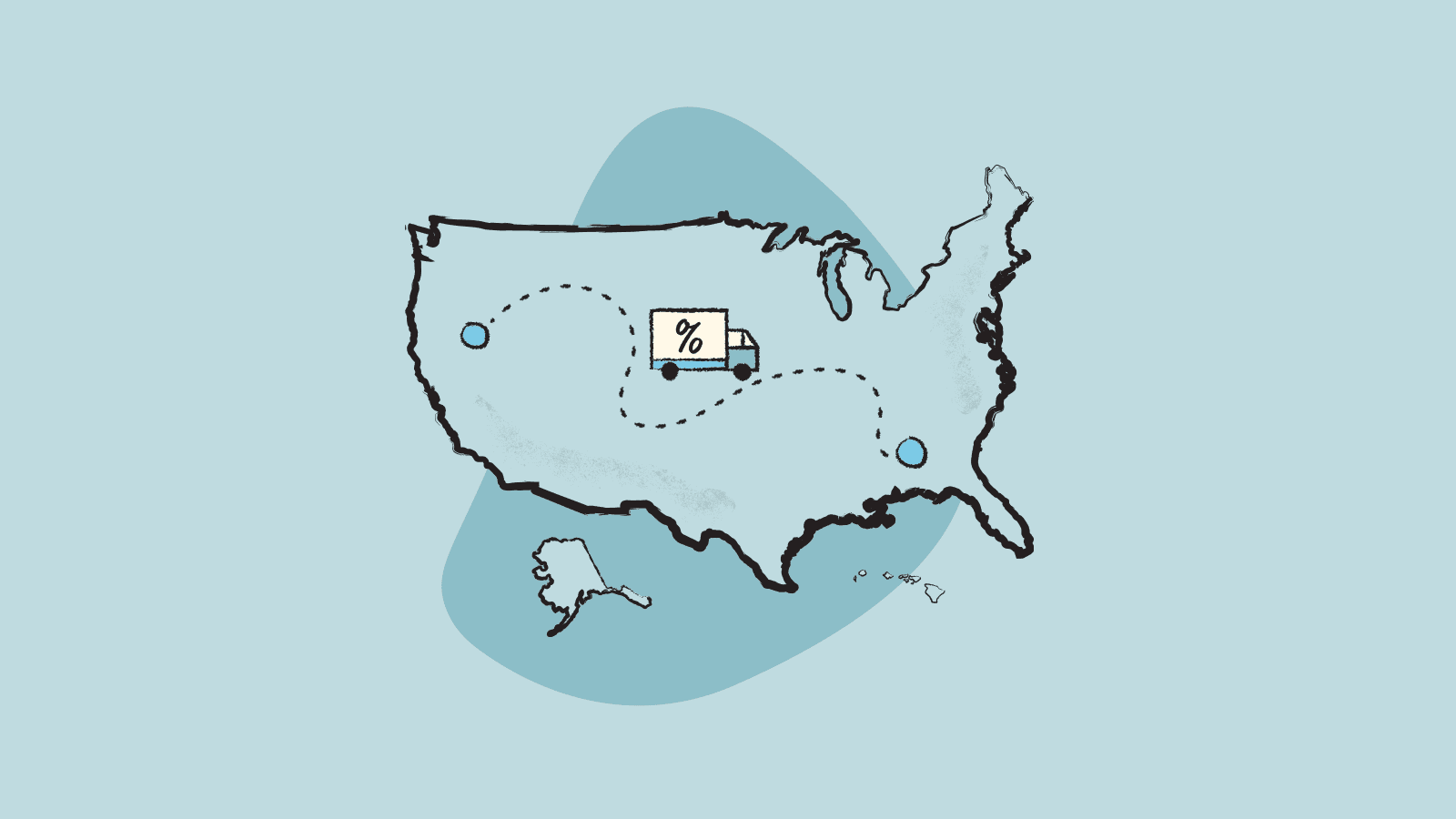You're here:
Is shipping taxable in the US?

Even if you’ve managed to work your way through the maze that is US sales tax requirements, you’ve still got another hurdle to clear as an eCommerce seller.
Shipping taxes.
You’d think shipping tax would be straightforward: either you bill an additional fee for shipping charges or you don’t. The actual rules, unfortunately, are much more complicated.
According to BigCommerce, “You should charge sales tax on shipping charges when making a sale to a buyer in one of your nexus states if that state’s tax law declares that shipping charges are taxable.”
We’ll break that statement down in more detail in this Quaderno guide.
Shipping Tax Considerations in the US
Several factors go into determining whether shipping is taxable or not in the US.
Your Nexus States
Whether or not you should charge tax on shipping depends in part on whether or not you have a “nexus” (aka, a connection with a state or local tax body that triggers taxation) in the state you’re shipping to.
For example, if you’re in New York, shipping to someone in Iowa, and you have neither a physical location nor a “click-through nexus” in Iowa, you likely won’t be required to collect tax on your shipping charges.
State Taxation Requirements
Next, you need to take state requirements into consideration. Some states require taxation on shipping charges; others don’t.
Even in those that do, taxation may depend on whether shipping charges are included as part of the cost of the item in question or whether they’re billed separately.
Looking for an easier way to handle logistics without complex shipping setups? Dropsurfing offers a modern alternative to traditional fulfillment models — but you’ll still want to keep an eye on how US shipping tax laws apply.
Additional Shipping Tax Considerations
Just because this hasn’t gotten confusing enough already, online sellers need to pay attention to the following issues as well:
- Delivering items on your own, rather than using a “common carrier” like USPS or FedEx, may affect whether or not your shipping charges are taxable.
- Even in cases where shipping is not taxable, bundling together shipping and handling charges may create a taxation requirement (as in the case of Virginia and Maryland).
- Allowing customers to pick up goods from your business or using a “ship to store” method can affect shipping taxation requirements.
- Shipments can contain both taxable and nontaxable goods. In these cases, the burden is still on your business to apply the appropriate tax rate.
Part of the reason shipping taxation is so complicated is that many of these laws were passed before the advent of eCommerce - and it’s pretty clear that they haven’t kept up in all cases.
But that doesn’t mean you have to make sense of the system on your own. Let Quaderno simplify the process by integrating directly with your business to ensure the appropriate taxes are collected on each purchase. Sign up for a free trial today.
Note: At Quaderno we love providing helpful information and best practices about taxes, but we are not certified tax advisors. For further help, or if you are ever in doubt, please consult a professional tax advisor or the tax authorities.


